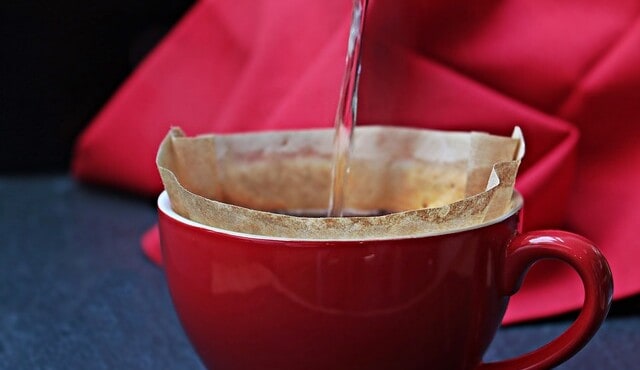When it comes to making the perfect cup of coffee, we all know that it is important to select high-quality coffee beans and use a specific brewing method, but did you know that the quality of the water you use to brew can also make a huge difference? What is the best water for coffee?
Since coffee is 98% water, you need to use water that is perfectly free of impurities that give an unpleasant taste and smell to the drink. The water must also be heated to the correct temperature, between 90.5-96.0 degrees Celsius.
When you really think about how the importance of water quality in the brewing process makes a lot of sense, you might ask yourself what kind of water do you use to brew your coffee, and what’s the real difference is? This is what we’ll talk about today!
Tap water and coffee
For most people, using tap water to brew coffee is a big risk to the quality of the beverage. It’s easy and affordable, but it can also negatively impact the quality of your coffee.
Tap water may come from a borehole, well, river, or other groundwater source depending on where you live. Because these water sources have different characteristics, the quality and taste of tap water will vary depending on where you live.
Chances are, regardless of where you live, your tap water contains calcium, iron, copper, and manganese salts, among other compounds that can give your water a slightly sour or metallic taste.
Therefore, even if your tap water has been 100% approved as safe to drink, it may still taste less than ideal. This unpleasant taste is felt when you use tap water to brew your coffee, even if you are using the finest quality coffee beans and the tried and tested brewing method.
Types of Water
Also, depending on where you live, the hardness or softness of your water can affect the taste of your coffee. Soft water is obtained by treating it with sodium ions, in contrast to hard water, which contains other dissolved minerals such as calcium and magnesium.
Soft water tastes more salty, so many people taste harder water. In the world of coffee, there is quite a lot of controversy about whether to use hard water to brew it.
Opponents of hard water believe the added minerals muddies the taste of coffee, making it more bitter than it should be. Hard water proponents argue that the extra minerals in hard water can “trap” the aroma compounds in the coffee beans, creating a stronger flavor profile. If you live in an area with hard tap water, it is fairly easy to test your preferences for yourself.
The taste and color
Brew one coffee using regular tap water and then brew another coffee using purified water. If you can feel a noticeable difference between the two cups, then you can decide for yourself which type of water gives your coffee the best taste.
Water purification for making coffee
If your faucet is running hard, mineral-rich water but you find that you prefer the taste of soft water brewed coffee, there are several ways you can filter the water at home to achieve your desired coffee aroma.
Bottled water. If you are confident in the quality of the bottled water purchased and the mineral balance is observed in it, then this method can be used to make coffee. You should not use highly mineralized bottled water for coffee, otherwise, it will be bitter. The lack of bottled water is the heterogeneity of quality and high cost.
A jug serves as the filter. Using a filter pitcher to remove chlorine and other harmful impurities will help if your tap water is not too hard. Remember that for this type of filter to work properly, the filter element must be changed regularly. An old cartridge in a jug will only harm the drink. By the way, many coffee drinkers prefer water with magnesium added. This is due to magnesium’s ability to “stick” to the flavor compounds in coffee beans. The company “Aquaphor” manufactures such cartridges, known as A5 modules, with the addition of magnesium.
Filter with a flow-through (two-, three-, four-stage filters installed under the sink). This type of filter will purify water from harmful impurities indefinitely as long as the cartridges are available. If an ion-exchange resin cartridge is installed in the system, our drink may taste salty.
Reverse osmosis system. If you have a reverse osmosis system installed at home, then you, as a coffee lover, are just in luck. The system purifies water from all known harmful impurities by 99.9%, while its operation will cost you much less than buying bottled water. However, if you are just starting to think about buying it, you should pay attention to models with a built-in mineralizer, which will dominate your tap water to give it its familiar taste. Coffee made with such water will fully reveal its taste.
Final Thoughts
As you can see, something as simple as water can actually have a huge impact on the quality of a cup of coffee. It should also not be forgotten that if you make coffee using modern coffee machines, then the use of hard water will sooner or later lead to its breakdown and costly repairs. For this very reason, using a reverse osmosis system is the preferred option for making great coffee.

